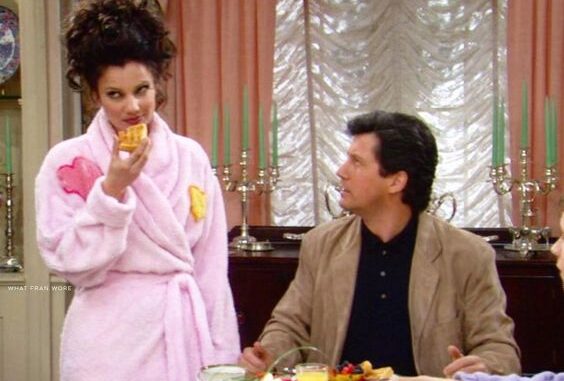

It seems like there’s more to smile about now that the actors’ strike is over and the red carpets are full again. But in Hollywood, things are not business as usual. The great labor dispute is still fresh in people’s minds.
Last year, writers and actors quit after contract negotiations with film and television producers broke down, clashing over issues such as compensation for streaming shows and employment. use artificial intelligence. Studios, facing strong economic headwinds and declining moviegoers, made some early concessions, but for writers and actors it wasn’t nearly enough.
As for the actors, union president Fran Drescher, of the Screen Actors Guild-American Federation of Television and Radio Artists, is in charge.

Last year on the picket line, Drescher said, “We’re being scientifically squeezed out of our livelihoods.”
When asked whether the union’s stance was unrealistic, Drescher replied: “It’s not unrealistic; it’s realistic. What the hell are we doing? Moving furniture around the Titanic? All We are all going down unless we rescue ourselves right here and now from everyone.” really doing bad things to good people.”
And she said the same things to the studio heads.
Several new agreements were signed at the Screen Actors Guild headquarters in Los Angeles. Drescher pointed to his chair at the conference table: “I sat right here, day in and day out. Then there were the four CEOs across from us and their lawyers. This is actually where we solved the problem.” solve the problem.”
In the glass-walled conference room, the two sides are physically close, but often miles apart, and neither side is in the mood to compromise at first.

“I mean, these were the most powerful people in Hollywood telling me, ‘Best, last, last,’” Drescher said. “And I said, ‘I understand what those three words mean, but I’m telling you, if we don’t understand this or that, it’s going to be a deal-breaker.’”
Drescher said the tone in the room was mostly civil, but overall, the negotiations were a brutal experience. “Sometimes I feel nauseous,” she said. “When I walked out, I would say, ‘Oh my God. I need to sit down. I need something cold to drink. I need to go to the ladies’ room. I need everything at once and immediately, ‘ because it just takes so much out of you.”
Smith asked: “Do you think people underestimate you?”
“That’s right,” Drescher replied. “Not people who know me well. They know me and they don’t expect anything less.”
But the studio bosses? “They didn’t see me coming, no, not them.” And after nearly four months, there is agreement on a new deal that gives union members much of what they demanded, as SAG-AFTRA’s Duncan Crabtree Ireland pointed out: “The total package comes in at more than a billion new salary dollars and fund the benefit plan for the term of the contract.”
In essence, the deal gives actors and writers, among other things, a whole new rest for streaming shows and a say in how AI-generated imagery is used. out of them.

To be honest, the new contract is better than some people expected. Drescher noted, “George Clooney said, ‘I bet my house and lost that you can’t get this deal.’”
To be sure, contract negotiations are a live test, but Fran Drescher is no stranger to being tested.
For example, “The Nanny,” the ’90s show that Drescher helped create and that made her a household name, almost didn’t happen. The main sponsor felt that Drescher’s character, Fran Fine, would be better suited to Central America if she were not Jewish but Italian.
Drescher, a Jewish New Yorker from Queens, stood his ground: “I actually said, ‘The nanny, Fran Fine, must be Jewish,’ because I knew she was.” The world I feel most comfortable writing in and easiest for me to play, because it’s second nature to me.”
The sponsor gave in. Fran Fine was Jewish and “The Nanny” was a huge success.
Smith said, “You stick to your guns and go with what’s authentic to you?”
“Yes, exactly, because if I hadn’t and the show flopped, the feeling of regret for not following my own instincts would have tormented me – probably still does,” Drescher said. .
And she experienced worse: In 1985, Drescher was raped during a home invasion. She forced herself to memorize the attacker’s face so she could identify him for the police sketch artist. “We caught him just by me describing to him what was still in my head,” she said.
And after being diagnosed with diabetes
nt into this one moment of truth. And thank God, it paid off.”
But it might not be over. The Hollywood strike of ’23 is said to have emboldened other unions to take action themselves. And when asked if her own union might strike again, Drescher wasn’t making any guarantees.
“Here’s the thing: Let’s make a deal, and we won’t have to strike. We don’t want to strike. We never wanted to strike. But it took them longer than it should have to realize that we meant business, and that there was, you know, a new girl in town.
“Maybe now they’ll think differently,” Drescher said. “It’s like, ‘Let’s not go through that again. Let’s just sit down and come to a meeting of the minds.’ You know, there’s ways to spend less money, folks. But don’t look in my direction.”
Smith asked, “What about your career on camera?”
“What? I’m never going to work again! There’s a blacklist with one name on it!” Drescher laughed.
But these days she’s basking in the glow of having helped the industry through a tough time, and of doing it her way.
Yet, she says she doesn’t care if she isn’t re-elected union president: “I make my case. It may not be popular. And I’ll respect that, you know, democracy is messy. I’m not a dictator. But I will stand on my ground.”
And tonight Fran Drescher will be standing on the Oscar red carpet – a small-screen star who’s found her place among the big-screen giants.
“I’m not gonna feel like a shrinking violent ’cause I’m not in anything, ’cause I’m in everything!” she said.
You feel like, this year, you earned your spot there? “I do, I do!” she laughed. “I won’t feel inadequate. I feel adequate!”

